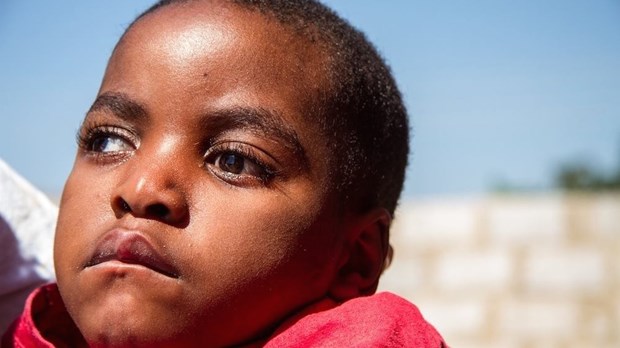
It had been more than a year since we last buried a child. And though we all knew it would eventually happen again, it felt like an especially hard blow. When the time came, Special Hope Network had existed in Lusaka, Zambia, for close to four years and we had been serving children with intellectual disabilities at our Community Care Centers for almost two. We had developed a model of providing education and therapies that was really making an impact; really changing lives. And yet, we weren't able to change his.
Joseph arrived at our Community Care Center with his mind and body crippled by a profound incidence of Cerebral Palsy, resulting from complications at birth and compounded by severe acute malnutrition and a seizure disorder that went untreated for years. Joseph was never going to be one of our "success stories." His death, however, initially felt like a failure in so many ways.
In the developing world, the mortality rate for children with intellectual and developmental disabilities is as high as 80 percent—so increased from the norm that most research assumes these children are being "weeded out." 90 percent of them will never attend school, and HIV/AIDS and malnutrition rates are markedly high in this demographic. Negative stigma abound, and often these children are hidden away from their society according to the United Nations Enable.
Special Hope Network is working to address these issues. We established our Community Care Centers to meet families in their neighborhoods with the support and encouragement they desperately need. In their two years of operation, Special Hope has seen dramatic improvement in the well-being of children with intellectual disabilities, as well as in the attitudes and outlooks of the parents and caregivers.
So, what do we do with a Joseph? What do we do when the model is not "successful" in the life of a particular child? As the Chief Operations Officer of this organization, I am easily tempted to think this way. I can get caught in the strategies and statistics, and in doing so, I can miss the beauty of a situation like Joseph's.
In reality, we do not run our programs to "fix" children. This is never our goal because we don't believe there is anything wrong with them. Even if we never saw a measurable result come out of our Community Care Centers, Special Hope would still operate them. We believe children with intellectual disabilities are not valued because of what they can do, or what potential they may have- they are valuable because they are children, period. And we love them because of this. We sing to them because of this. We read to them because of this. We dance with them in our arms because of this. We don't do any of these things for the sole purpose of producing growth. We do it because we believe these children are worth it.
With this in mind, I know exactly what we do with a Joseph. We celebrate his life. We consider our time as a part of his life as a very real success. We did exactly what we set out to do: we loved him and his family no matter what. Joseph never achieved a single goal on his Individualized Educational Plan. The play therapy we did with him on a daily basis made very little difference in his developmental level. He barely showed response when we sang, read, or danced with him. The severity of his disability did not allow for any of this, but our understanding of his humanity allowed for the core beliefs of our model to be carried out, even unto the last day of his life.
Special Hope will always work to help children grow, and we will always be excited to share when a child learns something new. We absolutely care about pushing children to grow and learn as much are they are capable, and we will constantly work to develop better models of doing this. But please understand, this is not at the heart of what we do. We love children exactly as they are, and we seek for God to be glorified in our doing so. As we stood together at Joseph's funeral, celebrating his life and mourning his loss, there was a very tangible expression of the truth of his value, as he was. I believe all who were present (Special Hope staff, mothers from our Community Care Centers, loved ones of Joseph's family) walked away that day with that impression. I will count that as a significant success as I continue to serve at Special Hope, and will pray for many more opportunities to love children like Joseph.
Elizabeth Bailey is the Chief Operating Officer for Special Hope Network, a faith-based organization working in Lusaka, Zambia to care for children with intellectual and developmental disabilities. She has been working with Special Hope in Lusaka for four years, and in that time has adopted a son (now 5 years old) who has an Autism Spectrum Disorder, and become a foster parent to a little girl (6 years old) who has Down syndrome.
More Perfectly Human posts:
How A Little Girl With Cerebral Palsy Shared Her Gifts by Meadow Rue Merrill
Here: Refelctions on Seven Years with my Daughter with Down Syndrome by Gillian Marchenko
Sinless Down Syndrome Angels, Or Something Else? by Margot Starbuck
If you would like to submit a post for consideration in this series, please go to my website for writing guidelines.
Support our work. Subscribe to CT and get one year free.
Recent Posts

Perfectly Human: What Is Ministry Success When a Child Dies?
Perfectly Human: What Is Ministry Success When a Child Dies?
Perfectly Human: What Is Ministry Success When a Child Dies?
Perfectly Human: What Is Ministry Success When a Child Dies?














